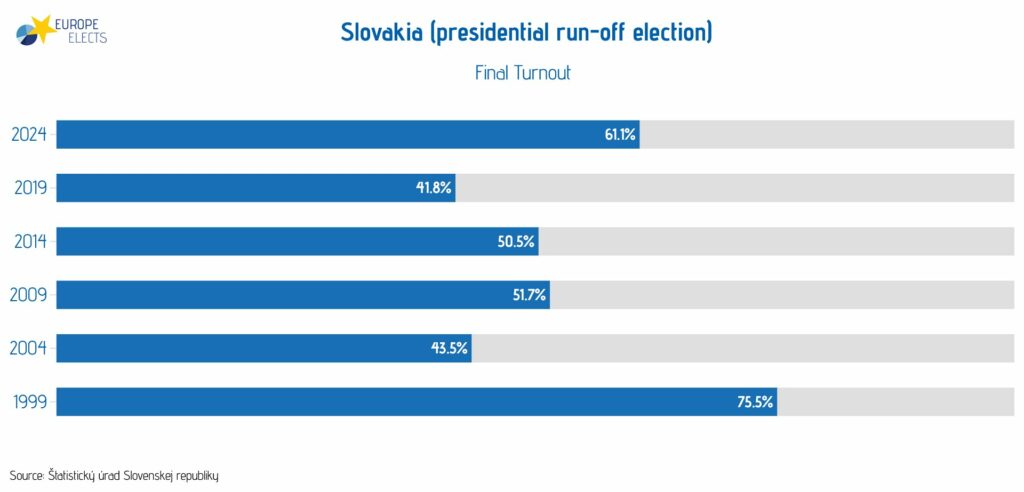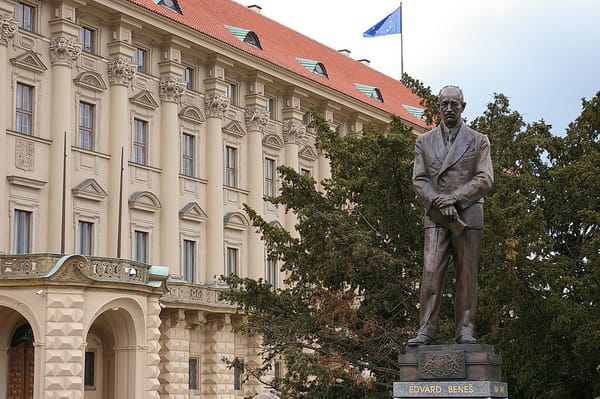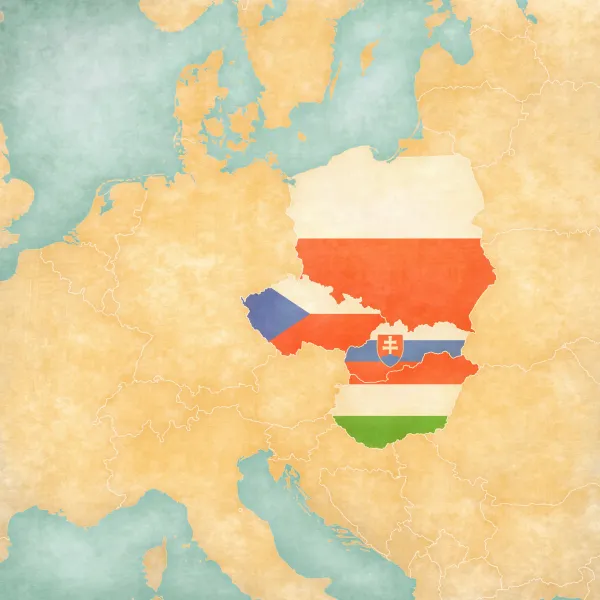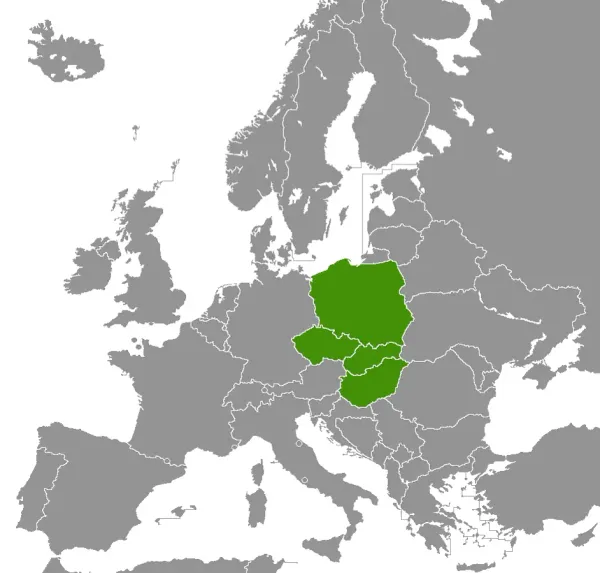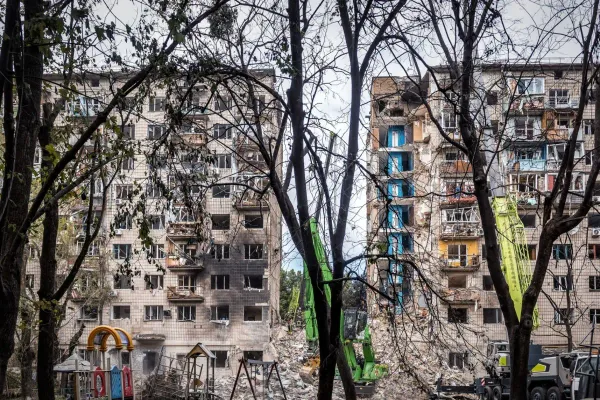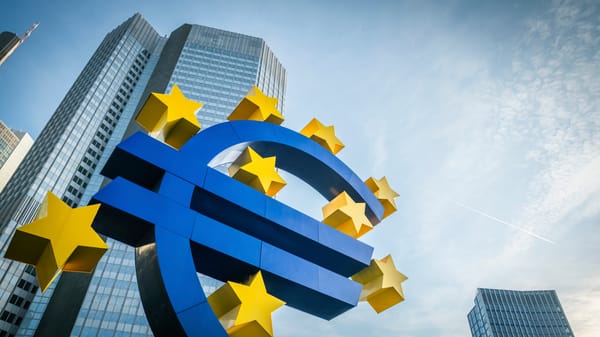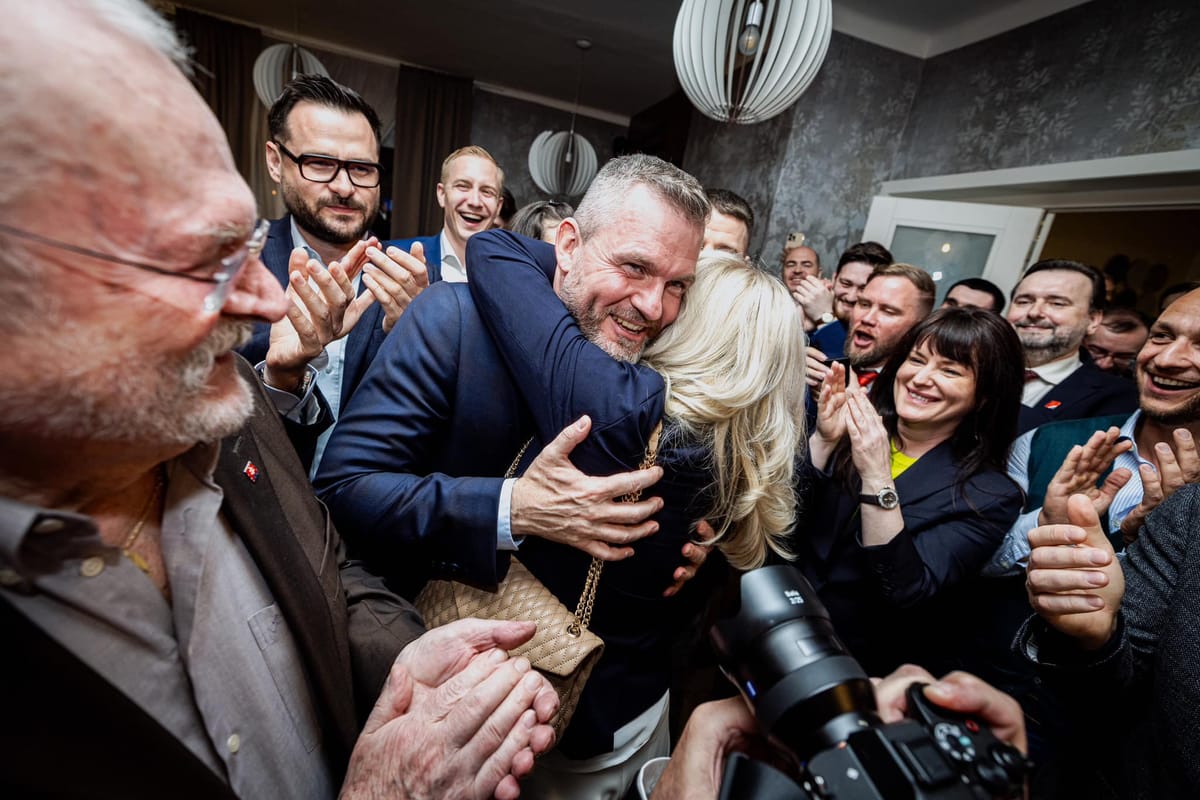
Fico ally Pellegrini wins presidential vote
Peter Pellegrini of Slovakia’s nationalist-left ruling coalition beat pro-Western opposition candidate Ivan Korcok by 53.1% to 46.9% in the presidential election on Saturday, 6 April. Turnout was 61.14%, the highest for a presidential election in Slovakia since 1999.
Pellegrini, 48, is House speaker and an ally of pro-Kremlin Slovak Prime Minister Robert Fico, who regained power late last year. As leader of the country’s third-biggest party, left-wing Hlas (Voice), he governs in coalition with Fico’s left-wing Smer (Direction) party and the far-right Slovak National Party.
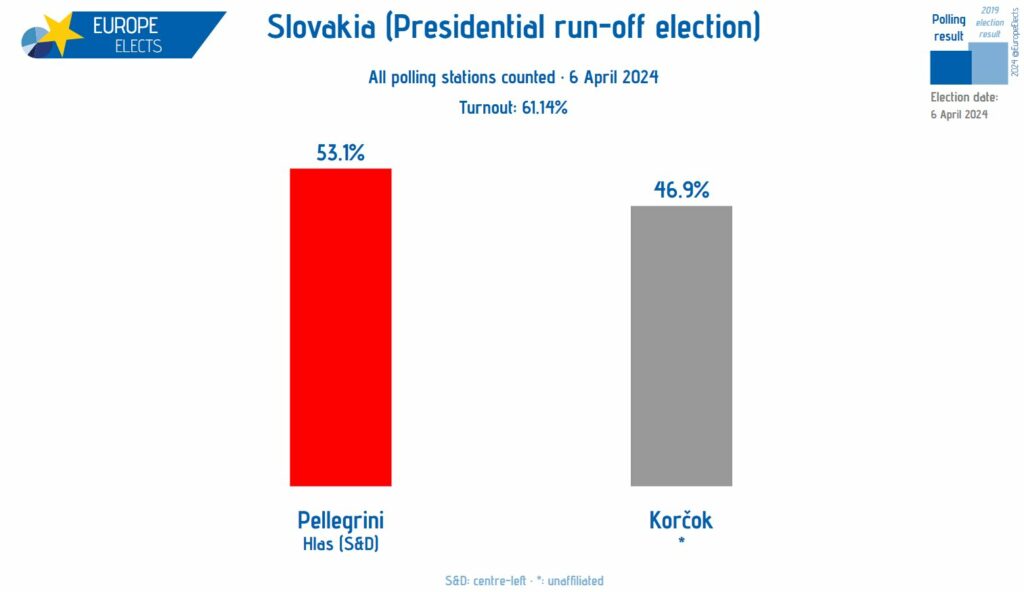
Pellegrini wrote on Facebook: “The number of votes I received from you is a huge commitment and I want to thank you for your trust. Thank you also to those who used their right to vote and chose another candidate.
“I understand that some of you may feel disappointed because your favourite did not win, but I want to assure you that I don’t see any winners or losers in this election. I see the victory of the values of peace, dignity, decency and that people must always come first.”
Victory eases route for Fico to limit graft penalties
Slovak heads of state can veto or send laws to the Constitutional Court for review, and Pellegrini’s victory will aid Fico’s plan to slash punishments for corruption and give his allies control of strategic posts including in the Constitutional Court.
Fico halted arms deliveries to Ukraine as soon as he regained power in September. Nevertheless, Pellegrini stated as he cast his ballot on Saturday that Slovakia will remain a member of both the EU and NATO.
In March, Korcok gained 42.5% of the vote, and Pellegrini 37%, and both proceeded to the second round after failing to secure a simple majority. Pro-Europe Korcok, 60, was Slovak foreign minister in 2020-22, after serving as envoy to Germany, the US, the EU and NATO.
Korcok disappointed by election tactics
Korcok wrote: “Even in politics it has to be like in sports. One will win in the final. Peter Pellegrini is the winner today. I congratulate him and wish him to be a good president for Slovakia.
The nation of 5.4mn people is more pro-Russian than other EU countries. Pellegrini ran a negative campaign against Korcok, saying he would embroil Slovakia in the Ukraine war – a tactic rued by the liberal outgoing head of state Zuzana Caputova.
The defeated candidate had some sharp comments for his rival, accusing him of cynically using the politics of fear. He wrote: “I’m disappointed that I lost. I am much more disappointed, however, that a campaign like we saw with the winner can succeed. Also this, including the creation of my image of a war candidate in the context of Ukraine and death, in the context of Gaza, Peter Pellegrini carries with him to the presidential position. That is his personal debt.
“The reasons for my loss should be analysed by experts, but I think the deciding factor was mobilization by fear. It was a masterpiece how to turn the slogan of ‘PEACE’ into the slogan of ‘WAR’ in a few days.
“I calmly admit – I got a lesson in pragmatism. The way Peter Pellegrini has got into the presidential palace is a case study (in) unprecedented cynicism and crossing red lines.
“I am worried because the trend of direction of the country, its decline. The relativisation of values and its deviation from liberal democracy not only received the green light but also received a strong backwind in the back. This is how I perceive the result of yesterday’s election,” Korcok wrote.
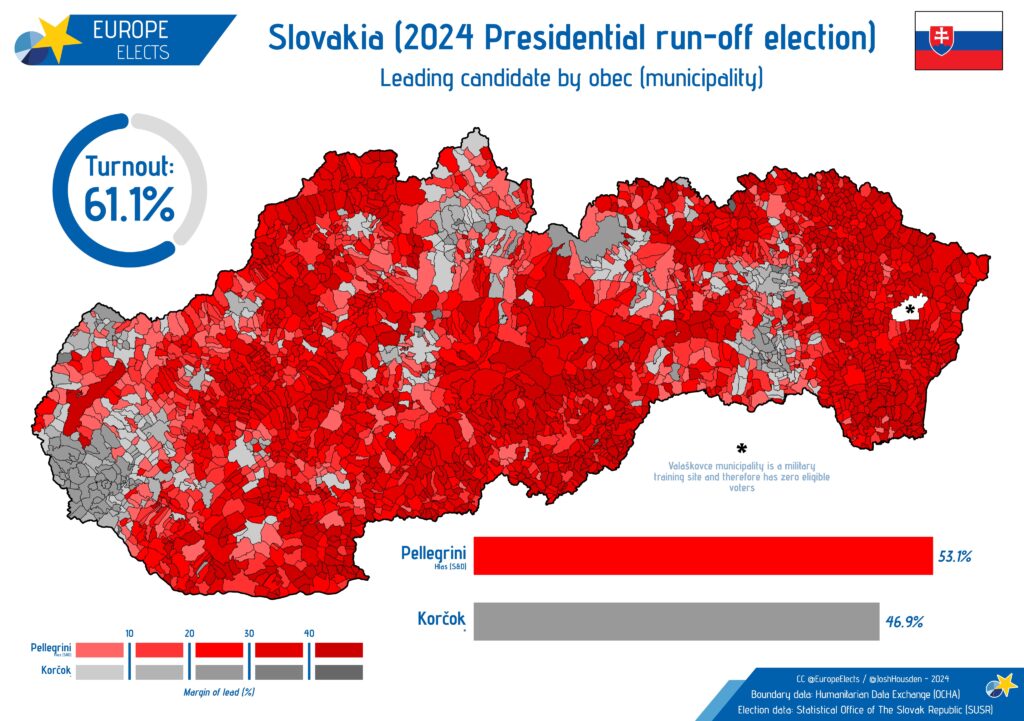
A geographical distribution of votes show Pellegrini dominating in the South and the rural areas while Korcok took the two largest cities of Bratislava and Kosice. Turnout was historically higher than average for the election of the Slovak head of state.
